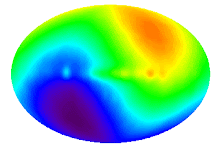GUT MICROBIOTA AND HOMEOSTASIS
The gastro-intestinal
microbiota is a highly diverse bacterial community that performs an important
digestive function and, at the same time, provides resistance against
colonization by entero-pathogenic bacteria. Commensal bacteria resist pathogens
thanks to resources competition, growth inhibition due to short-chain fatty
acid production, killing with bacteriocins, and immune responses stimulation,
external challenges such as antibiotic therapies can harm the microbiota stability
and make the host susceptible to pathogen colonization
The human microbiome
plays a key role in a wide range of host-related processes and has a profound
effect on human health.
The human body is a
complex ecosystem where microbes compete, and cooperate. These interactions can
support health or promote disease, e.g. in dental plaque formation.
In nature, organisms
rarely live in isolation, but instead coexist in complex ecologies with various
symbiotic relationships. As defined in macroecology, observed relationships
between organisms span a wide range including win-win (mutualism), win-zero
(commensalism), win-lose (parasitism, predation), zero-lose (amensalism), and
lose-lose (competition) situations
These interactions are
also widespread in microbial communities, where microbes can exchange or
compete for nutrients, signaling molecules, or immune evasion mechanisms

沒有留言:
張貼留言